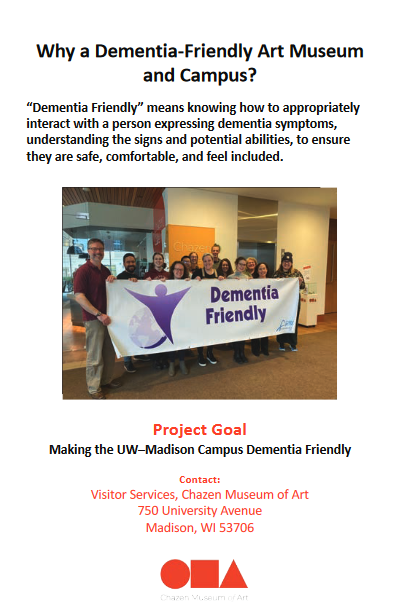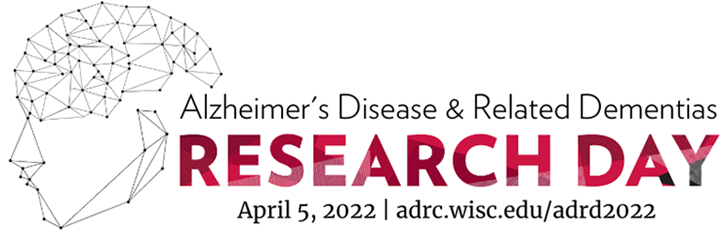 In 2005, Will Clifton—a UW–Madison alumnus and UW–Madison employee of 25 years—joined the Learning Communities for Institutional Change and Excellence (LCICE) in the division for Diversity, Equity and Educational Achievement under Dr. Seema Kapani. He served as the Workforce Learning Communities Program Development Specialist for nearly 10 years until he retired in 2015. He joined his wife to become a caregiver to his parents who were both navigating Alzheimer’s Disease.
In 2005, Will Clifton—a UW–Madison alumnus and UW–Madison employee of 25 years—joined the Learning Communities for Institutional Change and Excellence (LCICE) in the division for Diversity, Equity and Educational Achievement under Dr. Seema Kapani. He served as the Workforce Learning Communities Program Development Specialist for nearly 10 years until he retired in 2015. He joined his wife to become a caregiver to his parents who were both navigating Alzheimer’s Disease.
Throughout his professional and volunteer career, Will asked the question: How do we create socially just and inclusive spaces to live and work—places where each person feels included, respected and valued, for who they are and what they bring, and have the opportunity to be their very best?
This question continues to drive his work today as he fosters a “dementia-friendly” campus community.
 Don Creedy worked for the Division of Continuing Studies (DCS) in Adult Career and Special Student Services (ACSSS) for 23 years. In the last few years of his employment, his work skills began to stagnate. He seemed increasingly apathetic. Usually a quiet person, Don became even less communicative.
Don Creedy worked for the Division of Continuing Studies (DCS) in Adult Career and Special Student Services (ACSSS) for 23 years. In the last few years of his employment, his work skills began to stagnate. He seemed increasingly apathetic. Usually a quiet person, Don became even less communicative.
Luckily Don had a great team of coworkers including his wife, Moira Kelley, who recognized something was wrong. Don’s older sister had been diagnosed with amyotrophic lateral sclerosis (ALS or Lou Gehrig’s disease) and after her death she was diagnosed with frontotemporal degeneration or dementia (FTD) in addition to ALS. Because of his family history, Don was quickly diagnosed with FTD, a disease that strikes people at much younger ages than other forms of dementia. Don was 54 when diagnosed and died at age 56. His sister was 50 when she passed away.
Moira and the ACSSS leadership advocated for Don and with DCS support, he was able to work a year past his diagnosis with accommodated work duties. He retired at the end of 2015, but the care of their colleagues extended well past his retirement. Dementia caregivers can feel isolated and misunderstood at work, but Moira rarely felt that way thanks to amazing colleagues. Not everyone is that lucky. When Moira heard that Will was working on making UW–Madison a dementia-friendly campus, she was motivated to tell Don’s story.
Why does this matter?
In Dane County there are over 8,000 people living with dementia and 5 million in the U.S. These numbers will double in the next 20 years and half of adults 85 and older will have some form of dementia. Young-onset dementia can affect people in their 50s and 60s (and sometimes younger) who are still working and raising families. Moira and Don’s son was only nine when Don was diagnosed.
People who may have a form of dementia or a mild cognitive impairment (MCI) and are working for UW–Madison can easily feel isolated. Most people do not know how to interact with them, ensure their needs are met, and include them socially in workplace activities. Those with MCI still working on campus need human resources and their supervisors to recognize the signs of MCI and how to adapt work processes so that they can continue working.
In the fall of 2019, after his mother’s passing, Will returned to UW–Madison to serve as a Visitor Services Assistant at the Chazen Museum of Art. He began sharing how art positively affects those who suffer with dementia. He also trained museum staff to become dementia-friendly with museum visitors.
What are examples of some of the signs?
Signs may vary depending on whether the person has MCI or the degree to which dementia has progressed. No one set of symptoms applies to everyone with a dementia diagnosis. Here are some possible signs you might see when encountering someone with dementia. They may:
- Look confused, lost or may be searching for something.
- Have trouble finding the right words for things. They may talk around words.
- Struggle to understand.
- Lose their peripheral vision and start to have only tunnel vision as dementia progresses.
- Do or say unusual things. They may over share, speak about things off topic, put things in unusual places, become easily angered or swear.
- Have trouble using self-serve machines and other forms of technology.
- Be slow to respond to verbal commands or questions.
- Seem apathetic.
What do people say about experiencing mild cognitive impairments or early stages of dementia—and what challenges do they face?
- Not being respected
- Being ignored
- Being misunderstood
- Not being accepted
- Feeling isolated
- Being treated differently
What does it mean to be dementia-friendly?
Dementia-friendly means the staff know how to appropriately interact with a visitor or campus community member (faculty, staff, student) who is expressing dementia or MCI symptoms.
Below are the signs to help you understand the symptoms, potential abilities and limitations of the campus or community member—as well as a few ways to help ensure they feel comfortable on campus:
- Know that—although they may be confused and are not tracking well—most can, and will continue to, track feelings. More often than not, they will respond in kind to the feelings you are expressing. Therefore, smile, make eye contact, and speak in a relaxed, welcoming, and inclusive manner.
- Show patience through words, facial expressions, and body language.
- Slow your speaking. This will help the person to catch up with your words. They may have trouble processing what you are saying if you talk too fast.
- Pause between sentences. Pauses are golden! They allow you to slow down without sounding like you are talking to a child and gives them time to process what you are saying and to form their thoughts.
What can the HR community do?
Through years of participating in and co-facilitating LCICE Learning Communities, Will knows firsthand that true, equitable, inclusive change can only come through, “active participation in dialogue focused on creating working, learning, and teaching environments where everyone is heard, valued and included. Through dialogue, one learns how to engage in transformative changes of behaviors, policies, and procedures that collectively impact the campus climate for ALL community members.”
The HR community, by focusing on aspects of work including wellness and customer service, can learn about dementia and what it means to create environments that are friendly for those who suffer from it.
For example, if a visitor or campus community member displays signs of dementia, as noted above, they may focus on how you express yourself and your feelings, and will reflect behaviorally what you are demonstrating in your own behavior. As dementia progresses, the person may lose their peripheral vision. To aid them, sit or stand in front of the person and make eye contact. Do not approach the person from the side or from behind. This will startle them and add to their confusion.
The HR community can also get involved in shared governance at UW–Madison. This structure involves all voices on campus—from conceptualization of new processes, programs and policies—to enactment.
For more information
 To foster equity and inclusion, Will created a Showcase Poster in 2021 and was asked to present it again in 2022.
To foster equity and inclusion, Will created a Showcase Poster in 2021 and was asked to present it again in 2022.
Because the mission and vision of UW–Madison includes a focus on health, wellbeing, diversity, and inclusion of all people, our campus can join the Chazen Museum of Art’s efforts to become dementia-friendly.
There is a gap—and an opportunity here—to foster a more inclusive campus to support those on their journey with dementia or MCI in public facilities and for those working events (Wisconsin Unions, Camp Randall Stadium, Arboretum Visitor Center, the Nature Preserve, Campus Community Gardens, the Wisconsin Alumni Association, UW-Police and Security, etc.).
If you wish to know more, are interested making our campus community dementia-friendly, and would like to get involved, please contact Will Clifton at wclifton@uwhealth.org [updated 2023].
Caregiving and research study opportunities
The National Institute on Aging (NIA) created a series of videos, including one that featured Will and his parents entitled, “Why I Participate in Alzheimer’s Research.” The videos entice caregivers to participate in dementia-related research studies—to increase options for dementia prevention and treatment.
The video highlighting Will and his parents offers context for why Will engages in the campaign to make UW–Madison dementia-friendly. He explains the power of social interactions for people on a journey with dementia.
To learn more, consider attending the Alzheimer’s Disease & Related Dementias Research Day at the Wisconsin Institutes for Discovery (WID) on April 5, 2022. The event is free to attend but registration is required. Will, and others, will share their posters at this event.
